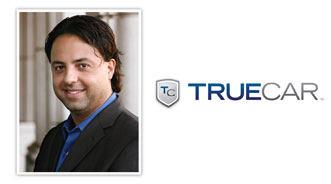TrueCar Says Consumers Bought Priciest Vehicles Ever in July

By subscribing, you agree to receive communications from Auto Remarketing and our partners in accordance with our Privacy Policy. We may share your information with select partners and sponsors who may contact you about their products and services. You may unsubscribe at any time.
SANTA MONICA, Calif. –
The economy remained sluggish and the debt ceiling crisis was on the worried minds of many. But neither of those things apparently stopped consumers from buying what TrueCar said was the priciest assortment of vehicles it has ever observed.
Thanks to a pricier product mix, limited inventories and the dearth in dealer discounts/OEM incentives, average new-vehicle transaction prices for July jumped to a record $29,761, according to TrueCar.
This marked a 2-percent year-over-year gain and a 0.3-percent sequential hike.
“Despite continued weakness in the economy and the ongoing concern over the debt ceiling, consumers continued to purchase vehicles packed with options in July,” explained TrueCar’s Jesse Toprak.
“Tightened inventories, lower dealer discounting and manufacturer incentives, along with a more expensive product mix resulted in the highest transaction prices we have recorded in the industry,” he added.
Breaking down the seven largest automakers, TrueCar noted that average transaction prices at Chrysler ($28,834) Honda ($25,836) and Hyundai /Kia ($20,575) were each at record highs.
Subscribe to Auto Remarketing to stay informed and stay ahead.
By subscribing, you agree to receive communications from Auto Remarketing and our partners in accordance with our Privacy Policy. We may share your information with select partners and sponsors who may contact you about their products and services. You may unsubscribe at any time.
Ford’s average transaction price was $32,714, General Motors was at $33,804, Nissan averaged $27,464 and Toyota came in at $25,710.
All seven were up year-over-year, with Ford (up 4.3 percent) showing the largest increase.
Month-over-month, Chrysler (up 0.9 percent), Ford (up 0.4 percent), Honda and Hyundai/Kia (both up 0.3 percent) showed gains, while GM (down 0.1 percent), Nissan and Toyota (each down 0.5 percent) showed decreases in average transaction prices.
Moving along, TrueCar also delved further into incentives, which were quite low during the month.
In fact, average incentives dropped 15.1 percent year-over-year to $2,418. This, however, was a modest increase from June (0.7 percent).
Chrysler ($3,162) had the highest average incentive, followed by GM ($3,026). All seven major OEMs were up from June but down on a year-over-year basis.
Hyundai/Kia (down 28.4 percent) had the largest drop from July 2010. Nissan (up 8.9 percent) had the highest increase from June.
“July is typically the beginning of the summer sell-down for automakers, but with inventories lacking on dealership lots, incentives are down significantly this year,” said Kristen Andersson, automotive analyst at TrueCar.com. “There just aren’t enough cars to sell, as in years past.”
TrueCar offered some more details on transaction prices and incentives in the following charts:
Transaction Pricing Forecast

Incentive Spending Forecast

Ratio of Incentives to Average Transaction Price



